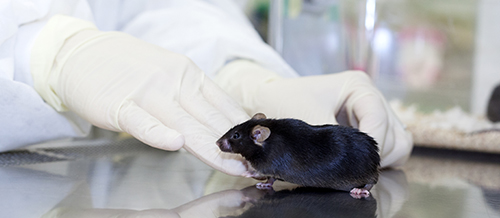Gene therapy could prevent learning and memory loss from Alzheimer’s disease (May 11, 2021)
Stem cell therapy offers potential treatment for ischemia (April 6, 2021)
Process behind kidney stone formation (March 31, 2021)
Bacteria immunization may improve stress response (Feb. 10, 2021)
Study: Shock waves can cause structural brain damage (Feb. 2, 2021)
Lab study sheds light on insomnia caused by alcohol withdrawal (Dec. 22, 2020)
New technique could improve wound healing (Dec. 10, 2020)
Cigarette smoke makes lung infection bacteria more dangerous (Oct. 28, 2020)
Potential new migraine medication developed (Aug. 12, 2020)
Possible molecular link between nonalcoholic fatty liver disease and cancer (July 22, 2020)
Exercise training reduces protein linked to muscle pain (June 23, 2020)
Stem cells accelerate diabetic wound healing in mouse model (April 10, 2020)
Possible biomarkers of traumatic brain injury identified (March 6, 2020)
Understanding chemotherapy-resistant lung cancer (Jan. 30, 2020)
E-cigarettes may make it harder for the body to fight off infection (Nov. 18, 2019)
Mouse study explores benefits of calorie restriction (Nov. 1, 2019)
Dietary oils could help with diabetic nerve damage (Oct. 28, 2019)
Mouse study: Potential stroke treatment only effective in males (Sept. 26, 2019)
Mouse study probes nicotine addiction from e-cigarettes (August 15, 2019)
Rat study: Single injection protects against TBI damage in short term (June 27, 2019)
Pinpointing genetic targets for meth addiction (May 29, 2019)
Molecular delivery system takes arthritis drugs directly to joints (April 11, 2019)
Rat study: Brain injury can cause PTSD without psychological stressors (Feb. 14, 2019)
Understanding a cause of aortic aneurysm (March 8, 2019)
Study sheds light on pesticides-Alzheimer’s link (March 13, 2019)
Sedative prevents neuron cell growth after TBI (April 5, 2019)
Molecular delivery system takes arthritis drugs directly to joints (April 11, 2019)
Molecular brain damage after blast exposure (Dec. 26, 2018)
Lab study suggests heart benefits from widely used diabetes drug (Dec. 20, 2018)
Mouse study: Aspirin may slow multiple sclerosis (Nov. 29, 2018)

